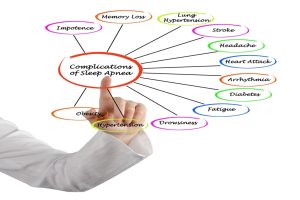 This weekly health news roundup presents latest news pieces on coronary heart disease, heart failure, dementia, high blood pressure, and atrial fibrillation. This week we discussed reduction of the risk of coronary heart disease and stroke with regular breakfast, a holistic approach to care for dementia patients, a common blood test used to detect high blood pressure, and an implantable device that may help reduce sleep apnea in heart attack patients.
This weekly health news roundup presents latest news pieces on coronary heart disease, heart failure, dementia, high blood pressure, and atrial fibrillation. This week we discussed reduction of the risk of coronary heart disease and stroke with regular breakfast, a holistic approach to care for dementia patients, a common blood test used to detect high blood pressure, and an implantable device that may help reduce sleep apnea in heart attack patients.
Coronary heart disease and stroke risk may increase with skipping breakfast regularly: Study
Coronary heart disease
and stroke risk may increase with skipping breakfast regularly. The study looked at breakfast consumption in men and found that those who routinely skipped on the most important meal of the day had a higher risk of heart attack and coronary heart disease.
Advertisement
The researchers looked at food frequency questionnaires and tracked the participants’ health outcomes for 16 years. Men who routinely skipped breakfast had a 27 percent higher risk of heart attack or death by heart disease, compared to those ate breakfast. Men who skipped breakfast tended to be younger in age, smokers, employed full time, unmarried, less physically active, and drinking more alcohol. Men who ate food late at night had a 55 percent higher risk of heart disease, compared to those who did not. During the study period, 1,572 men experienced first-time cardiac events. Continue reading…
Dementia patients may benefit from holistic approach to mealtimes and exercise
 As the number of dementia cases rises and research into the neurological disorder intensifies, a holistic approach to dementia is being seen as a real benefit.
As the number of dementia cases rises and research into the neurological disorder intensifies, a holistic approach to dementia is being seen as a real benefit.
The holistic approach focuses on individualized care and looks at the whole person as opposed to the person’s brain functions alone. It also takes into account the patient’s remaining strengths, emotions, and abilities, instead of just looking at their disabilities.
While it is true that as dementia progresses a person loses their ability to express their feelings, studies now suggest that people living with dementia are still able to maintain self-awareness, their sense of identity, and their individuality. Those who care for dementia patients with a holistic approach are able to both analyze a person’s medical and social history, as well as come to a clear understanding of what their preferences are. Continue reading…
High blood pressure may be detected by common ‘heart attack’ blood test: Study
 The Centers for Disease Control and Prevention (CDC) reports that roughly 70 million Americans have hypertension (high blood pressure). Only 52 percent of those with hypertension have the condition under control. Additionally, one in three Americans have pre-hypertension, meaning they are at high risk of developing hypertension if they do not take the necessary steps to manage their numbers.
The Centers for Disease Control and Prevention (CDC) reports that roughly 70 million Americans have hypertension (high blood pressure). Only 52 percent of those with hypertension have the condition under control. Additionally, one in three Americans have pre-hypertension, meaning they are at high risk of developing hypertension if they do not take the necessary steps to manage their numbers.
Lifestyle factors can highly contribute to a person’s risk of developing hypertension. To better predict a person’s future risk of hypertension, researchers at Johns Hopkins Medicine have found that a simple blood test used to detect heart attack may also be able to predict hypertension in the future.
Blood samples were collected from more than 5,000 people. Those who had slightly elevated levels of cardiac troponin T were more likely to receive a diagnosis of hypertension within a few years. Continue reading…
Atrial fibrillation patients with high blood pressure face higher stroke risk: Study
Atrial fibrillation patients with high blood pressure face higher stroke risk. The risk of stroke was found to be 50 percent higher among atrial fibrillation patients with uncontrolled blood pressure. The findings suggest that hypertension should be closely monitored in atrial fibrillation patients in order to reduce the risk of stroke, among other complications.
patients with high blood pressure face higher stroke risk. The risk of stroke was found to be 50 percent higher among atrial fibrillation patients with uncontrolled blood pressure. The findings suggest that hypertension should be closely monitored in atrial fibrillation patients in order to reduce the risk of stroke, among other complications.
The researchers used data for over 18,000 patients with atrial fibrillation from a large study known as ARISTOTLE to understand the impact of high blood pressure on their health.
Advertisement
Strokes were more common among atrial fibrillation patients who had a history of blood pressure or those who developed high blood pressure during the study. Continue reading…
In heart failure patients, novel implantable device may treat central sleep apnea: Study
 In heart failure patients, novel implantable device may treat central sleep apnea. The implanted device is similar to a pacemaker and treats sleep apnea specifically in heart failure patients.
In heart failure patients, novel implantable device may treat central sleep apnea. The implanted device is similar to a pacemaker and treats sleep apnea specifically in heart failure patients.
Lead author Professor William T. Abraham said, “The remede® system is the first fully implantable device to treat central sleep apnea in heart failure patients. Unlike traditional mask-based therapies – which have been shown to work only in some patients under certain conditions in CSA [central sleep apnea] – the remede® system is acceptable to patients and improves their sleep and heart function. Patients using the device tell us they haven’t slept so well in years. They have more energy and can do their normal daily activities without falling asleep. They also don’t have to fight with a mask.” Continue reading…
